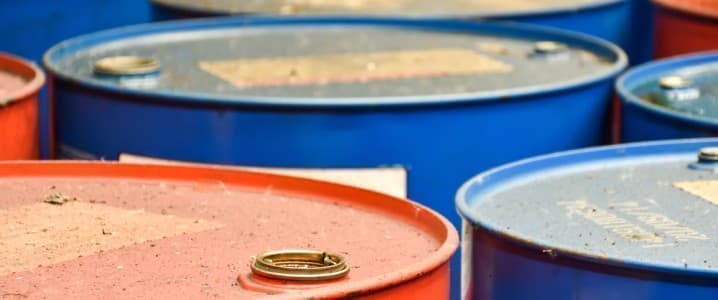As motorists in Kazakhstan grow increasingly partial to running their cars on liquified petroleum gas, or LPG, officials are warning that shortages of the fuel will inevitably lead to price rises.
This is a troubling prospect in a country that saw a wave of political unrest sparked in early 2022 by a spike in the cost of that very same fuel.
On November 20, deputy Energy Minister Alibek Zhamauov told reporters that from the start of 2024, prices for LPG will be allowed to increase at six-month intervals over the coming three years. The fuel is at present kept artificially cheap by state subsidies.
“Consumption is growing, and as a result there is a shortage,” Zhamauov said. “We all know that a large number of motorists are switching to liquefied petroleum gas.”
This year alone, more than 300,000 cars have been converted from running on gasoline to LPG, Zhamauov said. This has led to a shortage to requirements of around 15,000 tons per month.
And there is scope for this situation to worsen. There are more than 5 million registered vehicles on Kazakhstan’s roads – of that total 88 percent are passenger cars.
Zhamauov insists the government has taken measures to prevent shortages of LPG, including the total ban of exports, directing domestic production to internal needs, and securing additional supplies from energy joint venture Tengizchevroil. None of this has been enough.
LPG consumption in Kazakhstan over the first nine months of 2023 increased by 25 percent year-on-year. According to Energy Ministry forecasts, this trend is poised to persist. Should this prediction come to pass, it is inevitable that LPG will be allowed to rise in line with the dictates of the market, Energy Minister Almasadam Satkaliyev told reporters earlier this month.
While making those remarks, Satkaliyev pleaded on car owners to refrain from converting their cars away from gasoline. He also warned against the unsafe practice of utilizing makeshift or improvised equipment for converting vehicles to running on LPG. Doing this can pose safety risks and will be prohibited by law in the near future, he said.
The growth in popularity of LPG is a product of a government’s welfare-tinted policy to keep fuel prices low. LPG currently retails at around 80 tenge ($0.17) per liter, quite a bit below the production cost of 110 tenge. That price is found by many motorists to be a more economic proposition than the most popular type of relatively energy-denser gasoline – AI-92 – which retails at around 200 tenge ($.043) per liter.
An earlier attempt to dabble with LPG prices ended badly for the authorities. In a bold attempt at shock therapy, the government in January 2022 implemented a form of trading for LPG that saw prices spike, by around twofold in some instances. The pain was especially strongly felt in the western region of Mangystau, where around 70-90 percent of vehicles were fueled on LPG.
Localized protests in the west gradually escalated and then spread nationwide before evolving into a broader show of mass dissent against the government. More than 200 people were killed in the worst of the turmoil in Almaty.
The hope among officials on this occasion is that they can avoid a similar surge in discontent by spreading the pain over a longer time period.
By Almaz Kumenov via Eurasianet.org
More Top Reads From Oilprice.com:
- Global Refining Industry Braces for Tough 2024
- European Natural Gas Prices Seesaw as Cold Snap Arrives
- China's Economic Optimism Boosts Copper Market

















